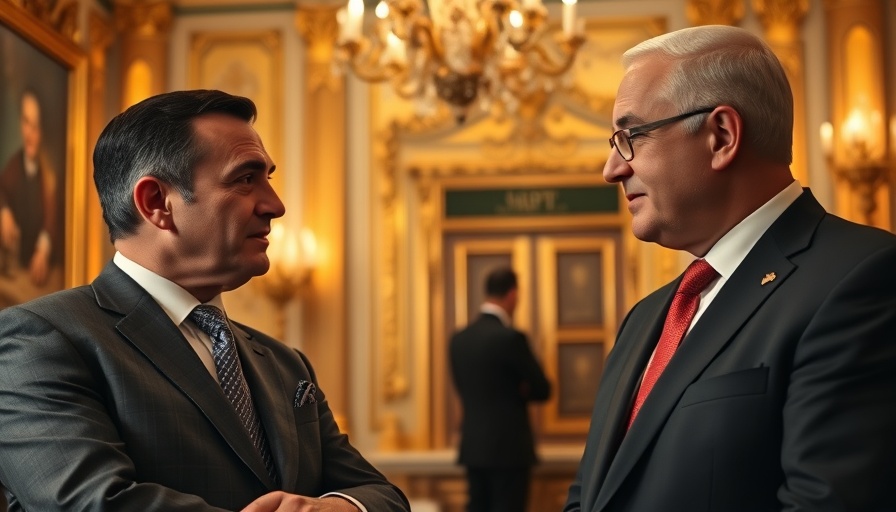
Understanding Trump's Role in U.S.-Israel Relations
In recent times, the relationship between the United States and Israel has been nuanced and complex. While former President Donald Trump is known for his strong support for Israel, it is essential to remember that he is primarily the president of the U.S., not of Israel. His recent trip to the Gulf, where he is expected to skip visiting Israel, highlights the shifting dynamics influenced by America's financial interests and strategic goals over religious and historical ties.
The Pressure of Expectations and Timing
Trump's presidency has often been marked by capricious statements that have the potential to alter the geopolitical landscape. As the world watches, the real challenge emerges from a combination of expectations and the unpredictability of Trump’s statements. While he may have coordinated efforts with Israeli Prime Minister Netanyahu, a sudden remark could throw a wrench into established agreements, impacting not just Israel, but the broader Middle East.
Why Israeli Actions Matter to Global Christians
For globally aware Christians, the actions and policies of Israel resonate deeply. With a focus on supporting the marginalized, particularly the persecuted church, these developments call for attention. Many believers around the world see Israel's actions as a reflection of biblical prophecy and are thus invested in understanding the evolving U.S.-Israel relations. Discrepancies in leadership statements could have implications for humanitarian efforts and religious freedoms in the region.
Future Trends in U.S.-Israel Relations
Looking ahead, the uncertainty in leadership must be acknowledged. Trump's presidency may have ended, but his influence lingers. Future U.S.-Israel interactions may pivot on the next administration's policies and how they choose to prioritize relations with Israel against other global interests. Analysts are divided on whether this is a step back for Israel or an opportunity for a more balanced approach to Middle Eastern politics.
The Human Dimension: Emotional and Moral Considerations
As Christians involved in humanitarian work, it is crucial to recognize the emotional and psychological toll that geopolitical shifts can have on people living in conflict. Recognizing these human experiences enriches our understanding and drives advocacy for justice and peace. The stakes are high, as decisions made far from the front lines have profound effects on everyday lives, faith practices, and community dynamics.
Engaging in Interfaith Dialogue
In a rapidly changing world, interfaith dialogue remains fundamental for promoting understanding and cooperation between communities. The relationship between Christians and Jews is significant, especially within the context of the Holy Land. Sharing narratives of faith and activism can forge stronger bonds, helping to alleviate prejudices and fostering collaboration in social justice initiatives.
Acting on Information for Improved Outcomes
The evolving U.S.-Israel relationship emphasizes the importance of being informed and engaged. As individuals motivated by faith, it is our privilege and duty to amplify voices experiencing persecution or injustice. Engaging with policymakers, supporting organizations aiding the persecuted church, and educating ourselves on the complexities of these issues can lead to a more robust global Christian response focused on advocacy and support.
As you reflect on these developments, consider how your voice can impact those who are suffering and marginalized. Being well-informed is the first step towards meaningful action in our communities and beyond.
 Add Row
Add Row  Add
Add 








Write A Comment